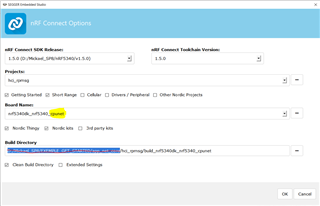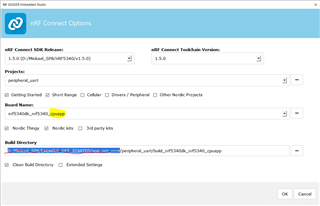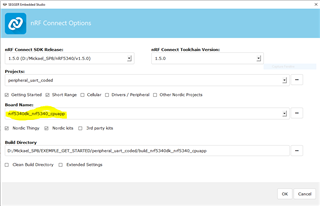Hello
I'm using nRF5340 DK with nRF Connect SDK 1.5.0 and SES IDE and I want to change the PHYs and TX power of the peripheral_uart sample (v1.5.0\nrf\samples\bluetooth\peripheral_uart) to switch to the long range configuration. The problem is, with this version of nRF Connect SDK, I do not know where to write to change these parameters.
I flashed peripheral_uart in the core application and hci_rpmsg in the network core
I tried to look for answers in the forum but, unless I'm mistaken, I couldn't find any answer because all the cases in the forum are based on the old versions of the SDK and none on the new one (nRF Connect SDK 1.5.0).
Can someone please enlighten me on this :)
Any help is welcome
Thanks
Mickael





